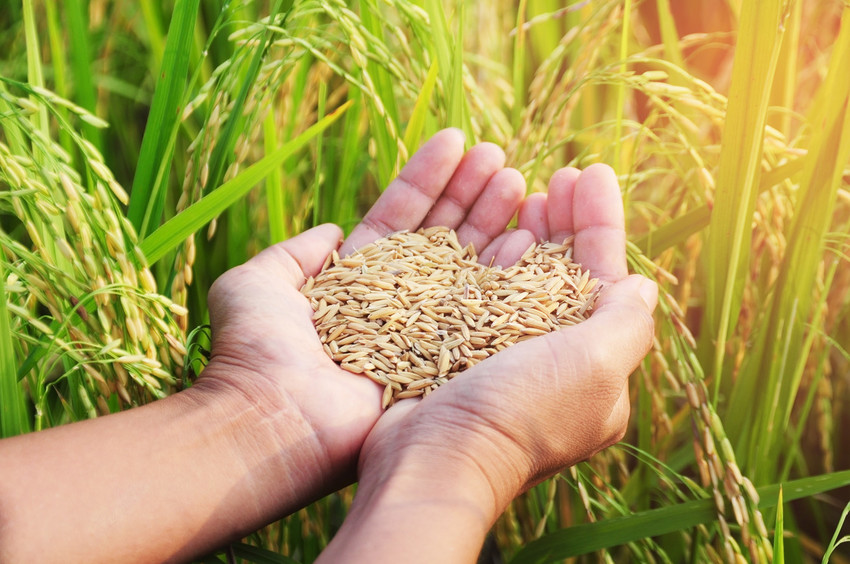Starting Your Own Agribusiness Venture

The agricultural sector plays a critical role in the Philippines’ overall economy. Agriculture, forestry, and fishery account for around 20% of the country’s GDP year in and year out, and nearly two-fifths or 12 million of the jobs nationwide come from this industry.
The country’s topography and general make-up contributes to this sector. We have over 30 million hectares of prime agricultural lands. We are surrounded by bountiful bodies of water. We have a tropical climate that makes it wonderful for the growth of essential food crops. We have been globally recognized as a frontrunner when it comes to agriculture.
It only makes sense why Filipinos then and now have built businesses around it. There is great opportunity not just in providing products in the domestic market but also in the export arena.
If you want to get into an agribusiness venture, such as a small farm or a fish pen, you might be wondering which steps you should first take. You might not even have the land or the pond yet, but you might be thinking about the best time to get started. These are some of the steps you might want to take.
Learning about farming or fisheries
Perhaps this should be your initial step – learning about the trade. It would help if you have some background or knowledge regarding the venture you’re trying to get yourself into. For example, you might have worked in a banana plantation or a small-scale tilapia production facility before. Use it as a starting point. Don’t go into something that you don’t have any idea about just because you learned from somewhere that it makes a lot of money.
Like any other job, you need to love what you do or be interested about it at the very least. You don’t necessarily need to be a mushroom lover or aficionado to start your own mushroom growing business, but at least make sure you know a bit about gardening or maybe have a green thumb. Because how do you expect to grow mushrooms for commercial use if you hate having soil in stuck your fingernails or when you can’t even grow a flower in your backyard?
If you can find a mentor, then that would be excellent. You need someone who you can learn from directly. Maybe it could be a relative who has a similar interest? Or it could be someone who has been successful in the same venture in your town. These people could be helpful. You can even volunteer to work for them for a while to gain enough experience before you start your business. If you have to pay them to teach you the trade, then do so. The trade-offs will be far better, you’ll see.
Teaching yourself about the business side of things
If you want to start any business, you’ll need a business plan. When creating one, you’ll have to consider how the market is going. You’ll need to learn about supply and demand. It could be a detailed process of how a farm is supposed to operate. What’s the management structure? What products will you offer? What price points are you looking after? How will you handle logistics?
Creating a business plan comes after the ideation process. It’s a way of asking yourself how you will monetize, say, mushroom production (to continue from the earlier example). This works well as a supplement to the idea of learning or developing an interest in the agribusiness venture you want to be in. The two are interconnected, so it’s important to get both things right from the get-go.
Finding your funding
Finding the right footing to get your agribusiness off the ground maybe difficult, but perhaps the biggest hurdle is finding the funding you need to get started. If you’re on this blog, we’re assuming that you might not have all the capital you need to start an agricultural business on a scale that you’d like.
Sometimes, it’s all about starting small. Maybe you already have that parcel of land sitting idle in the province. It will probably be good to get it started on a micro-scale, initially through using money from your personal budget. See how you’ll enjoy growing chickens or raising a few goats. Continue doing it for a few months and check if you’re producing good results.
Using this method, however, might take a long time to scale, since you only have a fraction of the amount needed to set a full-on business operation going. Don’t worry because loans aimed at beginning entrepreneurs in the agricultural sector like the various options offered by Blend PH are out there!
There are also some government agencies that offer these kinds of grants to young or new farmers, so consider those, too. These programs offer training, subsidized equipment prices, help with certifications, and other similar assistance.
Financial help is always available, given how lucrative farm or agricultural businesses are. You just have to do your part. Do your research and know where to look!
Getting your licenses and permits
Your town or provincial government may have different policies when it comes to meeting the requirements for your small farm or fishpond. But to get to the point, the basics will be more or less the same. You would need to register your business name and furnish your BIR and SEC papers, get a permit from the mayor, and more.
If you want to start a piggery or something that involves waste management or environmental impact, you might need to deal with DENR or your local health department at some point and get the necessary clearances.
You will also need to figure out your business structure. Are you doing it on your own (sole proprietorship) or are you partnering with other people? You should consult an accountant and in some occasions, a lawyer, to get information that’s specific to your needs or situation. It’s important to set up bookkeeping right from the start most especially when you’re relying on funding from other sources like business partners, government loans, or alternative financial solutions like Blend.
If you want to start in agribusiness, you should start moving today. You need to learn about it first and foremost. It will be filled with trials and errors. It can get messy, time-consuming, and costly. But these things are inevitable; they’re part of the processes. One thing’s for certain though: In a small business involving farming or fisheries, you’ll reap what you sow – both literally and figuratively.
